Morality as Rationality: A Study of Kant's Ethics: Routledge Library Editions: Kant
Autor Barbara Hermanen Limba Engleză Paperback – 17 oct 2017
| Toate formatele și edițiile | Preț | Express |
|---|---|---|
| Paperback (1) | 388.42 lei 6-8 săpt. | |
| Taylor & Francis – 17 oct 2017 | 388.42 lei 6-8 săpt. | |
| Hardback (1) | 822.34 lei 6-8 săpt. | |
| Taylor & Francis – 19 apr 2016 | 822.34 lei 6-8 săpt. |
Preț: 388.42 lei
Nou
Puncte Express: 583
Preț estimativ în valută:
74.32€ • 77.61$ • 61.37£
74.32€ • 77.61$ • 61.37£
Carte tipărită la comandă
Livrare economică 15-29 aprilie
Preluare comenzi: 021 569.72.76
Specificații
ISBN-13: 9781138650916
ISBN-10: 1138650919
Pagini: 326
Dimensiuni: 156 x 234 x 18 mm
Greutate: 0.43 kg
Ediția:1
Editura: Taylor & Francis
Colecția Routledge
Seria Routledge Library Editions: Kant
Locul publicării:Oxford, United Kingdom
ISBN-10: 1138650919
Pagini: 326
Dimensiuni: 156 x 234 x 18 mm
Greutate: 0.43 kg
Ediția:1
Editura: Taylor & Francis
Colecția Routledge
Seria Routledge Library Editions: Kant
Locul publicării:Oxford, United Kingdom
Public țintă
General, Postgraduate, and UndergraduateCuprins
Preface; 1. Introduction 2. Maxims 3. The Hypothetical Imperative 4. The Categorical Imperative (The Formula of Universal Law) 5. The Categorical Imperative (The Formula of the Law of Nature) 6. The Categorical Imperative – Remaining Considerations; Bibliography
Descriere
First published in 1990. The aim of this thesis is to show that the way to understand the central claims of Kant’s ethics is to accept the idea that morality is a distinctive form of rationality; that the moral "ought" belongs to a system of imperatives based in practical reason; and that moral judgment, therefore, is a species of rational assessment of agents’ actions. It argues, in effect, that you cannot understand Kant’s views about morality if you read him with Humean assumptions about rationality. This title will be of interest to students of philosophy.
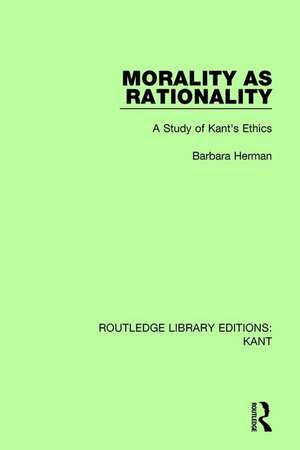







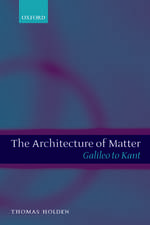






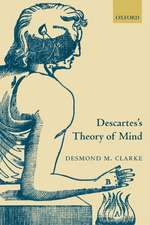
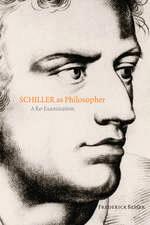

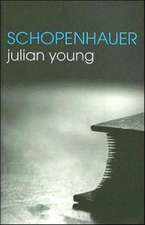
![British Empirical Philosophers (Routledge Revivals): Locke, Berkeley, Hume, Reid and J. S. Mill. [An anthology]](https://i4.books-express.ro/bt/9780415537742/british-empirical-philosophers-routledge-revivals.jpg)




